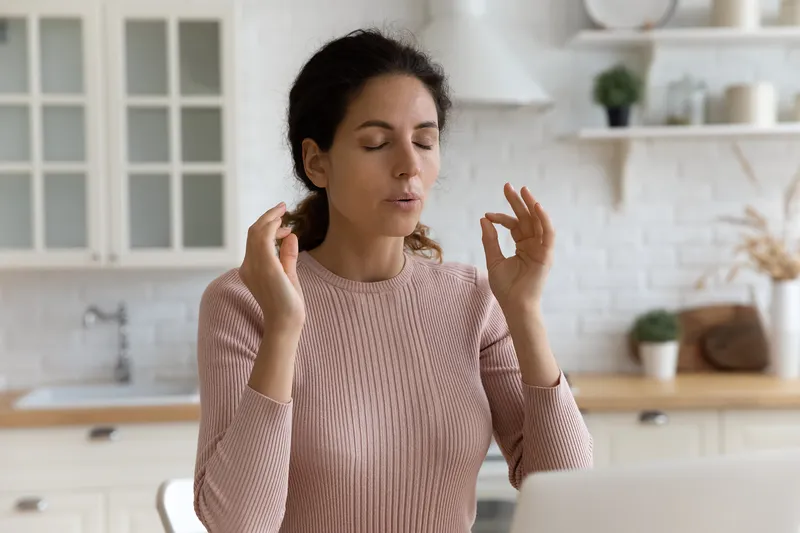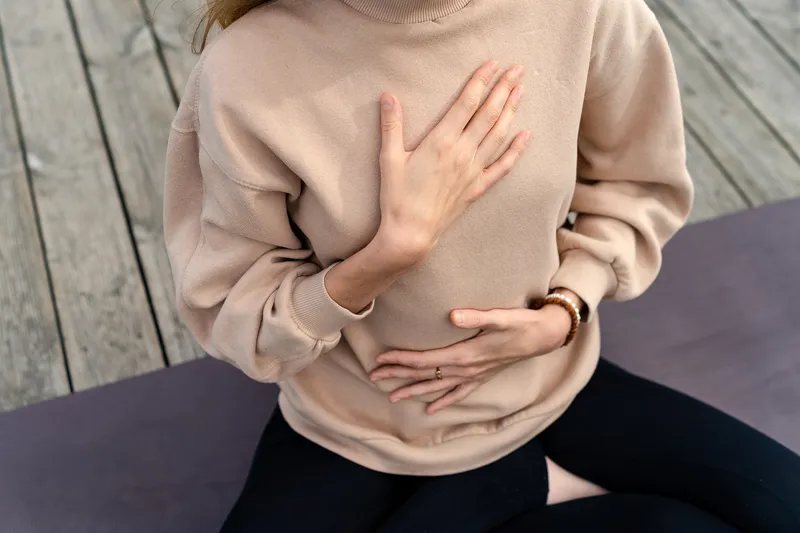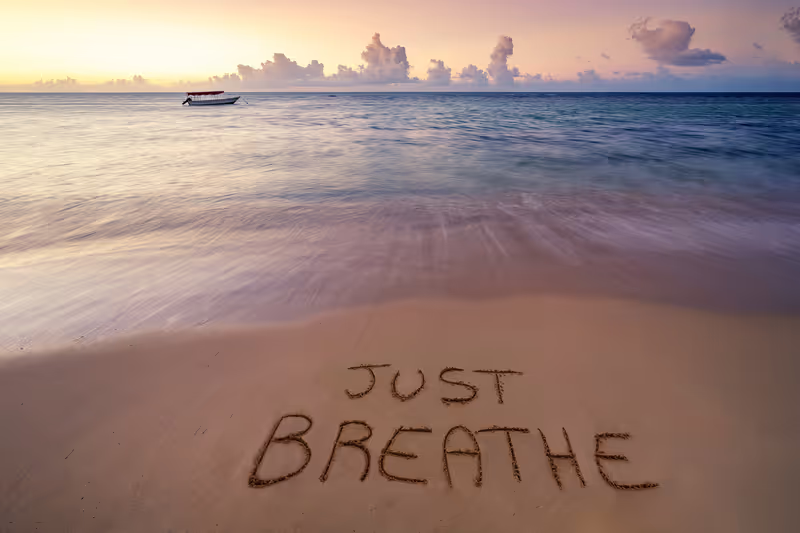Is the 4-7-8 breathing technique helpful in relieving anxiety?
We dig deep into the 4-7-8 breathing technique that has its origin in the yogic practice of pranayama.
It's hard to calm an anxious mind. When a million thoughts hijack every little inch of your brain, it's easy to feel overwhelmed and anxious.
While many hacks and how-to-guides advise people on how to quell a racing mind, only a handful are as effective as the 4-7-8 breathing technique developed by Dr Andrew Weil, an integrative medicine specialist, in 2015.
Interestingly, its origin lies in the yogic practice of pranayama, which is all about breath regulation. As the name suggests, this technique involves breathing in for four counts, holding the breath for seven counts, and exhaling for eight counts.

Image source: Shutterstock
“While it may sound simple, it takes some time to master it. But once you get a hang of it, the benefits are plenty. It will instantly make you calm. For some people, it also works as a technique to help them get sleep,” shares Pritha Kannan, a holistic wellness practitioner based in Delhi.
But how does this practice work?
Instant calm
When an individual is worked up or stressed, there's a surge of cortisol (also known as the stress hormone) in the body. This puts their system in a fight or flight mode, which makes it difficult to stay calm.
“At this stage, the stress manifests through several physical symptoms including high heart rate and rapid breathing. When one consciously practises the 4-7-8 technique, the parasympathetic nervous system that is responsible for the body's relaxation gets activated,” Kannan tells YS Life.
Aarti Singh, a 42-year-old teacher from Kolkata, has been using this technique to unwind after a stressful day at work. From ensuring discipline in the classroom to checking assignments and long commutes to work and back, her system feels overstimulated all the time.
On the insistence of a friend, she decided to try 4-7-8 breathing and it has worked wonders. “I can't believe something like this can instantly make me relaxed. It's almost as if I enter zen mode…the impact is unbelievable. Funnily, I have been asking all my friends to try it out,” she adds.
It's not just her—several studies validate the efficacy of the 4-7-8 technique.

Image source: Shutterstock
In July 2022, a team of Thailand-based researchers studied the immediate effects of the practice on heart rate and blood pressure among 43 healthy young adults. Each of them performed this breathing for six cycles per set for three sets, along with one minute of normal breathing between each set. The researchers observed a positive impact on the parameters of the participants.
“There's also evidence that this technique helps reduce pain in those who experience inflammation. Also, a 2017 study proved how 4-7-8 breathing also helps enhance concentration. The benefits are unlimited,” says Kannan.
Besides, a study published in July 2022 in the journal Physiological Reports validated the benefits of the 4-7-8 technique for sleep deprivation.
“Sleep deprivation may disturb heart rate variability, blood pressure, blood glucose, and endothelial function in healthy young adults. The 4‐7‐8 breathing technique may improve these outcomes in those with and without sleep deprivation,” read the study.
A step-by-step guide
Let's face it—the technique is not as easy as it seems.
One takes some time to get acquainted with any practice. With regularity, it becomes more powerful. Here's how to go about it.
First, find a space that's quiet or with minimal disturbance. Keep your back straight and sit on a mat. Now place your tongue against the back of your top teeth. Exhale completely through your mouth around your tongue.

Image source: Shutterstock
“Purse your lips and inhale for four counts. After this, hold your breath for a count of seven and then exhale through your mouth for a count of eight,” informs Kannan.
For beginners, it is advised to practice for four breaths—eventually, one can work their way up to eight breaths. Some people can also experience lightheadedness initially but there's nothing to worry about.
“Remember you need time to get better at the practice. You can't rush it—and if you do, it completely defeats the purpose. Try and practice this technique twice a day and not more—once after you wake up and once before bedtime,” concludes Kannan.
Edited by Kanishk Singh







